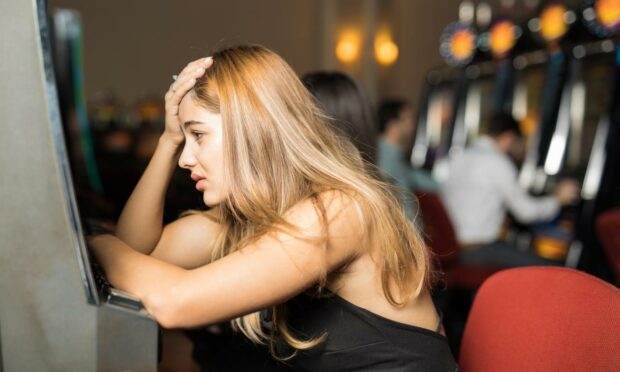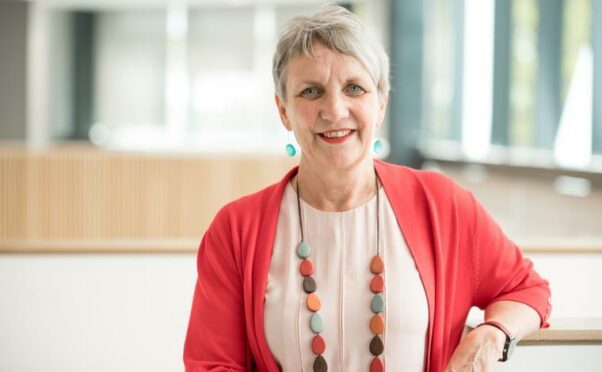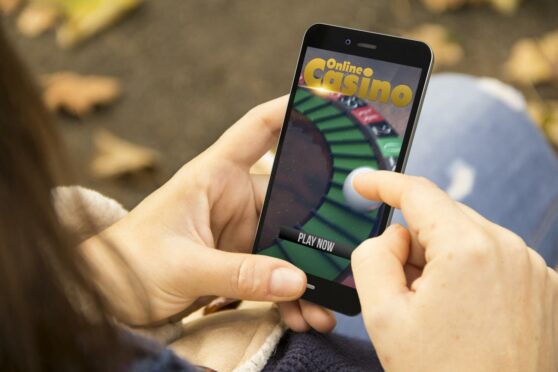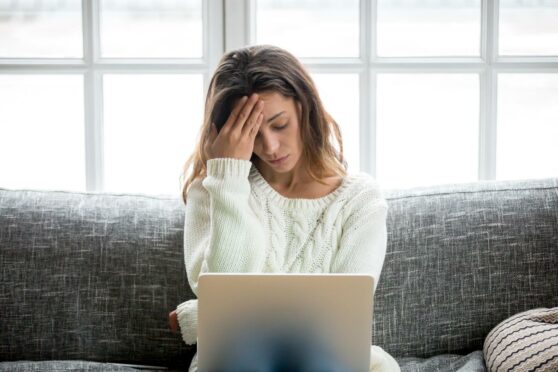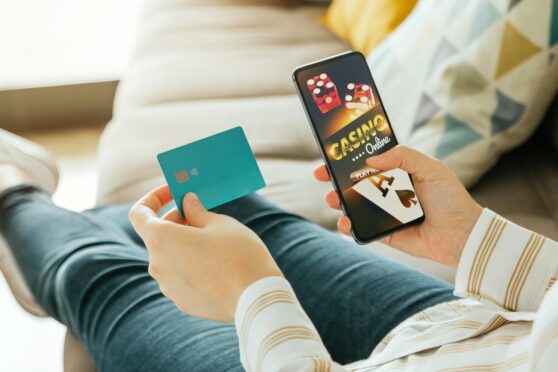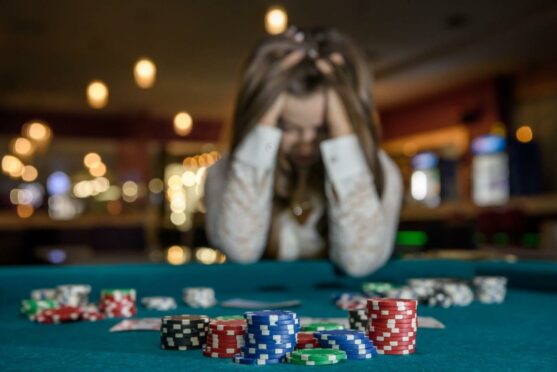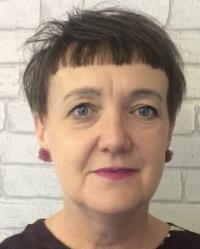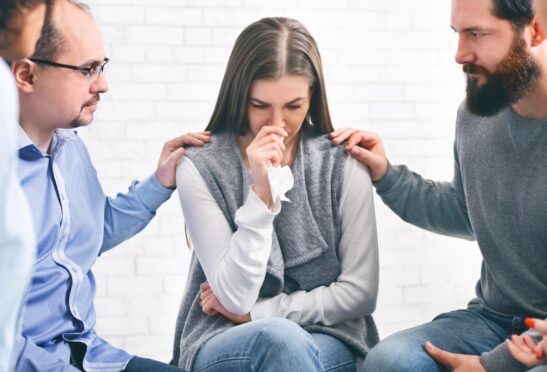In advance of Safer Gambling Week next month, which aims to raise awareness of the dangers of gambling, recent evidence has revealed the scale of addiction across the UK, which soared during lockdown as people dealt with loneliness, isolation and boredom.
UK gamblers lost an astonishing £14.36 billion last year, compared with £8.36 billion a decade ago, with an estimated 207,000 Scots addicted or at risk of developing an addiction.
A study published by Stirling University earlier this year showed that around one in six regular sports bettors started new gambling activities during lockdown (March 23 – mid-June 2020). Of these, 5.4% male sports bettors started playing lotteries and 3.5% began betting on virtual sports and races.
Among female sports bettors, 6.8% started betting on virtual sports and races, 6.5% began playing lotteries, and 3.4% took up online bingo. Online betting on virtual sports or races showed a significant increase during this time.
Professor Kate Hunt, of Stirling University’s Institute for Social Marketing and Health (ISMH), said: “When examining online sports betting, a minority continued to bet as some horse races and sports were still available in other countries. Furthermore, a minority, some people also started gambling on new types of activity – including the lottery and virtual online sports – that they had not previously engaged in.”
The research showed that women were at least as likely as men to gamble, and only last month, a gambling summit held in Scotland laid bare the escalation of the problem, identifying plans to focus on women’s gambling addiction and recovery.
Gambling support organisation Gamcare states that 30% of callers to the National Gambling Helpline identify as female, adding that the impact can be particularly severe for some of the most vulnerable in society.
In addition to susceptibility to addictions, superfast broadband, advertising and the increase in smartphone gambling apps have helped boost easy access during lockdown as betting premises and casinos closed – further driving addictions underground.
We spoke to a gambling addict, support service and therapist about the ways gambling has affected people in lockdown.
Addiction services
“It’s a hidden thing,” says Gill Davies, project co-ordinator for the Gambling Support Centre at Citizens’ Advice Scotland (CAS). “Before I started working on this project I had this vision of gambling as old men in raincoats in bookies, and it’s not that any more.”
And Gill believes the problem is about to get worse, too, as evictions and debt collections restart, and payment breaks and furloughs come to an end.
“There’s more stigma around women gamblers because there’s this idea they are supposed to be the carers, and they’ve somehow failed in these caring duties,” she said.
CAS is currently working with women’s aid groups across Aberdeenshire, Inverness and the Highlands, with a new officer soon to be appointed for Scotland focusing on women.
Michelle Mundy, training and engagement officer for the Gambling Support Centre, is based in south-west Aberdeenshire CAS, and believes the region presents particular difficulties for gamblers.
Her addiction was so bad she had used her nine-year-old son’s mobile phone to gamble, and made an email address in his name in order to gain access to those sites
“The difficulty we have is the lack of resources,” she said. “This area is quite rural so the nearest support is in Aberdeen. There are some areas in this region that are quite isolated and when there’s nothing else to do, going on your mobile phone or playing slots or bingo might be the only escapism you have. They might be the only people you speak to in a day.”
The region Michelle covers runs from Elgin to Clackmannanshire, from the Outer Hebrides to Skye – and she has already dealt with 42 clients since April last year.
An £81,000 gambling loss in a week
“People usually come to me when things are quite desperate,” she said, recounting a lockdown case of a client from the west coast who came to CAS on the day of her eviction.
“That was when we discovered that she had spent all of the money she should have been spending on her mortgage on gambling,” says Michelle. “She was playing online slots via her mobile phone. Basically, she was getting paid and within an hour she had spent her entire wages.”
Another female client, who lived rurally, had received a £100,000 inheritance before she began to play online bingo as a way to chat to other people. In one week, she had spent £81,000.
“It’s such a secretive addiction,” says Michelle. “Unlike drugs or alcohol, you can quite easily tell if somebody is drunk, or somebody has taken something that they perhaps shouldn’t. But somebody could be standing right next to you gambling, and you don’t know.”
Facing a gambling addiction
Although online gambling providers have a number of measures in place to help people manage the amounts of money being bet, the downward spiral can accelerate rapidly, where thousands of pound can be lost in minutes.
Someone all-too-familiar with this is Lorraine (not her real name), 52, from Aberdeenshire, who started gambling online 10 years ago while working in childcare. With her two sons old enough to go out in the evenings with friends, she turned to online bingo to fill the quiet evenings.
“That was when I started what I initially thought was going to be a nice couple of hours pastime at night, although it turned out to be anything but,” she said.
“I thought, I’ll just have a wee shot of bingo, and that’s where it started. I got a bit bored with bingo, started online slots at 10p, 20p per spin, and then it got really out of control. That wasn’t doing enough for me. I wanted more and I had it in my head that I could win all this money. But it never happened.
If you want to gamble, you want to gamble there and then. Very little takes that away
“Basically it got to the stage where my salary was getting paid into my account and was going out again right away because I couldn’t stop gambling. I knew I had to do something about it but I didn’t know what.”
Even the self-imposed blocks on gambling sites were not enough to deter her. Most take 48 hours to remove the block on spending limit but, she says, the compulsion is overwhelming.
“If you want to gamble, you want to gamble there and then. Very little takes that away. What I did was just go and open up a site somewhere else.”
Despite the hurt and anger of family members and friends, who have often only become aware of the gambling problem when it has reached critical levels, CAS highlights the importance of their support for recovering gamblers, and Lorraine credits one of her sons for helping her see the scale of her addiction after six years.
“They knew that I gambled but then I broke down,” she says. “It had taken over my life, it was all I wanted to do, it was all that was in my head, and I knew financially that I was going down a hole with it.
“It was my son that said to me, ‘Go to Gamblers Anonymous’ – and that’s what I did. It took me a couple of weeks to pluck up the courage but I’ve never looked back since. That was the turning point.
“I told those closest to me,” she says. “I had been a different person for a long time. I didn’t know who I was. I was angry, I was distracted, I ignored a lot of friends and family that I would never have done this to before. It had consumed me.
“My mental health and wellbeing had totally gone. So I had to speak to those that were closest to me while I was starting on my recovery because I had to let them know why I had been that way.”
“I felt relieved that I had lifted a lot of weight off my shoulders.”
Sharon (not her real name), who helps facilitate discussion in a support group for Gamblers Anonymous Scotland, says more women are seeking support these days. She attributes some of this to the rise of increased targeted advertising and women’s magazines that carry bingo winner stories. However, she is aware of the stigma of shame that remains for many women.
She says: “I was terrified to come in the door because I had this vision that if I went to a meeting that it would all be old men. In my head, I thought I was the only woman that gambled.
“But when we tell our stories, there’s a lot of women in the room that nod and say, ‘That’s exactly what happened to me’.”
Therapy and counselling
Gambling support agencies stress the need to signpost services for problem gamblers within GP surgeries, hospitals and communities, given the co-factors that often accompany gambling, such as alcoholism, substance misuse, domestic violence, depression and – in severe cases – even suicide.
Dr Tricia Joyce, director of Grounded Learning, is based in Golden Square in Aberdeen and trains addictions counsellors. The qualified GamCare counsellor worked on a project in Moray to deal with women’s gambling and to deliver telephone counselling.
She said: “Part of the motivation for setting that service up was the rise in online bingo and the marketing was primarily targeted at women, and was quite different from the marketing for men.
“It was to bring down barriers to access, because we know there’s fragmented transport services, no buses, they’re expensive, there’s no buses from Dufftown, for instance. But we got a lot of people from the Highlands because they’re even further away from services.”
It’s a very silent addiction
Dr Joyce adds that addictions in women can be viewed differently to those in men.
“Society maybe has a more punitive reflection on women, who are thought to be nurturers or carers, getting drunk, and it may be the same with gambling,” she says. “There’s a fear from women that their kids might be taken from them.
“The thing about gambling is that it’s a very silent addiction. You don’t see people being drunk, you don’t see people looking for their dealer. And there is a ritual around addiction; writing out your betting slip, thinking about your bet, getting the bus to the bookies, it’s part of the process. But online or at a fixed machine, you’re feeding an instant dopamine hit – it’s a behavioural addiction and it is a difficult addiction.”
However, Dr Joyce believes it is possible for gamblers to address their problem coming out of lockdown, and recovery, she says, is different for everyone.
“You have people who can use their strengths and resources, or who have family. But some people don’t, they’re sitting in a wee dark room in the top of Wick.
“Some people take great solace from Gamblers Anonymous but there are a whole load of resources out there: they need to find the one that works for them, and that might mean trying a couple of different places.
“It’s about changing behaviours, looking at your triggers, how you distract yourself and what do you do instead.”
Lorraine, who is now an office administrator and hasn’t gambled in several years, also has three practical tips for women seeking support for gambling addiction.
“Block your access to gambling,” she says. “Then tell someone close to you – because so much of this is hidden; and then get the help and support out there that’s available for you.”
For help with addiction, or if you know someone who you think my have a gambling addiction, email GamblingSupport@scottishcabs.org.uk or go to Citizens Advice Scotland
Gamblers Anonymous Scotland at gascotland.org or call 0370 050 8881.
Gordon Moody at gordonmoody.org.uk or call 01324 241292.
